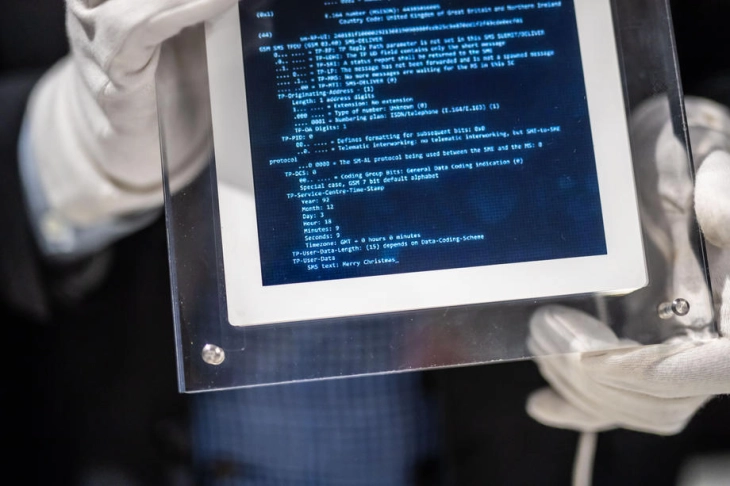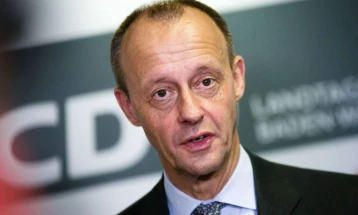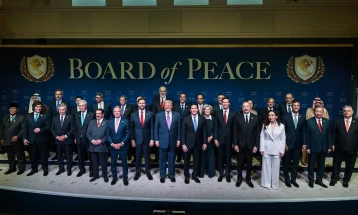'Merry Christmas': World's first SMS sold for 107,000 euros

Paris, 21 December 2021 (dpa/MIA) - The world's first SMS - a short greeting with only the words "Merry Christmas" - was sold at auction for 107,000 euros (121,000 dollars) on Tuesday.
The Short Message Service (SMS) item went under the hammer at the Aguttes auction house in Paris as a non-fungible token (NFT), meaning it has a digital certificate of authenticity and is considered the original.
The unidentified buyer of the NFT - secured by blockchain technology - is now verifiably the owner of the 2-word SMS from 1992.
Vodafone programmer Neil Papworth sent the message in December that year to a colleague who received it while he was at the company Christmas party.
Such digital certificates are gaining in popularity: The NFT of Twitter founder Jack Dorsey's first tweet was sold for 2.9 million dollars at auction earlier this year, while Tim Berners Lee's first source code for the World Wide Web fetched 5.4 million dollars.
Auction house development manager Maximilien Aguttes said the first SMS was "a historic testament to human and technological progress."
For legal reasons, the winning bidder also received tangible assets along with the SMS, including a digital picture frame to display it in.
Vodafone said it would donate the proceeds of the auction to the UN refugee agency UNHCR.
Despite alternatives like WhatsApp and Facebook Messenger, Papworth still believes in a future for the SMS.
"SMS was declared dead 20 years ago, but it is still here - and it will still be here in the future," Papworth, 51, told dpa in Montreal.
"Next year the SMS will be 30 years old, and after that I guess we will also be celebrating its 40th birthday."
The demand for SMS has weakened in the last few years as many consumers have switched to using messaging apps instead.
However, Papworth said those services were not relevant for some parts of the population. "When I ask some friends something on Facebook Messenger, they answer two weeks later; when I send them a text, they answer immediately," Papworth said.
He thinks that the SMS will still be important in future for elderly people and for countries with a weak network infrastructure.
In the 90s, Papworth had been working in England for Sema Group, an IT company which did technical services and programming for Vodafone. "We wrote their original text messaging system," he said. Nowadays he lives in Canada and works for another IT company where he is not in touch with telecommunication issues any more.







